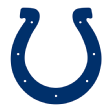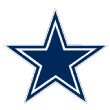There are many paths to a fantasy football championship, but true championship-caliber owners are the ones willing to take occasional risks.
Calculated risks, mind you.
Selected carefully, some such risks eventually flourish and are capable of single-handedly winning you your league.
Carson Palmer owners in 2015, those in the 48 percent of ESPN leagues in which he was selected, on average took him in the 17th round as the No. 22 quarterback off the board. He rewarded these owners with a 300-point fantasy season, by far the best of his career, and only his fourth year in the past eight in which he started all 16 games.
Other risks don't result quite as well, and they can unravel an otherwise competitive squad.
Ask Sam Bradford's 2015 owners about that. An 11th-round pick, Bradford missed two games and averaged 13.1 fantasy points in the other 14, an average exceeded by 23 other quarterbacks who made at least 10 starts.
It is why we call these individuals "make-or-break" players, as one year ago at this time, both quarterbacks ranked among the most volatile commodities available at the draft table. The object is to calibrate your roster so as to have enough such chances taken -- but not so many as to put your team in a perilous spot. Always balance your squad with a good number of known commodities to go with the calculated risks about which you feel most strongly.
Entering 2016, the following players most fit the description of "make-or-break" players. Picking the right ones might result in a league championship come December. The wrong ones might have you eliminated by October.
How lucky are you feeling?
Each make-or-break player includes "Tristan's ADP take," listing the player's ADP in ESPN leagues as of June 21, as well as my opinion on how worthy it is to risk it.

Tyler Eifert, TE, Cincinnati Bengals: We've already seen the reward; Eifert's 120 fantasy points through Week 12 of last season were second most among tight ends. We've also already seen the risk; he missed three of the final five Bengals games to bring his total to 17 absences in the team's past 33 regular-season contests.
Piling upon his injury history, Eifert isn't even a guarantee to play in Week 1, having had May 25 surgery on his ankle that typically requires a three-month timetable for recovery. He also was exceedingly fortunate in scoring position, converting 10 of his 11 end-zone targets for touchdowns, representing 10 of his 13 total scores, a rate that is exceedingly difficult to duplicate. The dearth of receiving depth in Cincinnati does give Eifert a fighting chance at approaching that TD total, but he's almost certain to draw a "questionable" tag in Week 1 even in the best-case scenario. Draft him without a backup plan at your own peril.
Tristan's ADP take: 57th (61.3) is too soon; Eifert is a wiser selection in the eighth round.

Carlos Hyde, RB, San Francisco 49ers: The coaching change from Jim Tomsula to Chip Kelly boosts Hyde's fantasy appeal if for no other reason than that Kelly's offenses are fast-paced, run boatloads of plays and therefore Hyde should benefit from a volume perspective. Conversely, Hyde's injury history spawns questions about his ability to hold up in such an offense, as despite a modest, 95-touch rookie campaign in 2014, he missed two games due to an ankle injury, and he missed another nine contests in 2015 following a stress fracture in his foot. That the 49ers aren't expected to contend only raises concern that Hyde might cede carries when his team plays from behind. On raw skill, he could be an RB1, one of the best at his craft. Drafted as one, however, he puts your team at considerable risk.
Tristan's ADP take: Aggressively target Hyde as a high-end RB2, before his 36th (37.8) number.

Alshon Jeffery, WR, Chicago Bears: A top-12 wide receiver in PPR scoring in both 2013 and 2014, Jeffery's 2015 was effectively ruined by injuries, beginning with a calf injury that cost him the entirety of the preseason, a hamstring injury in Week 1 and subsequent groin, shoulder, calf and hamstring (yes, another) issues that cost him seven games. Amazingly, his fantasy productivity wasn't impacted, as his 11.22 standard-points-per-game average was right in line with 2013's 11.62 and 2014's 10.44, illustrating his immense, WR1-caliber talent. Still, Jeffery's health needs to be closely watched this preseason, especially in light of his skipping organized team activities during ongoing contract negotiations; any further missed time is a red flag. If the news is promising come August, pounce.
Tristan's ADP take: 20th (21.6) is about right.

Eddie Lacy, RB, Green Bay Packers: Has there been a greater pingpong story of the offseason than Lacy's weight? One week, the Packers were thrilled that Lacy spent the winter and spring enduring a vigorous workout regimen. The next, they were more concerned with "body composition" and wanted him to lose a few more pounds. And what is Lacy's actual weight, anyway? He was reportedly in the 230s as a rookie in 2013, but reports circulated that he might've played 2015 at close to 260. Also, just how much does all this matter? We might not get a firm read on Lacy's fitness until preseason games begin, as few things are more nebulous than offseason physical fitness reports. Remember, before anyone even realized the shape he was in last season, Lacy made a compelling case to be fantasy football's No. 1 pick; he finished the season the No. 27 scorer at his position (in a down year for running back scoring). In fairness, the buzz does seem genuine this time, but stay tuned ...
Tristan's ADP take: 27th (29.0) might prove to be a few spots too late.

Dion Lewis, RB, New England Patriots: He appeared in seven games last season, all of them before Thanksgiving, and averaged 11.0 standard-scoring and 16.14 PPR-scoring fantasy points, which ranked ninth and second among running backs who appeared in at least as many contests. Lewis was the Patriots' running back who finally mattered, as coach Bill Belichick has a lengthy history of driving us fantasy owners nuts trying to decipher his backfield plans. Lewis' recovery from ACL surgery is apparently proceeding swimmingly -- he's reportedly on target for Week 1 -- but it's still a major knee reconstruction, which brings with it questions about how quickly he'll return to peak form. If he's healthy, the gig's presumably his and he could approach his 2015 per-game paces. Health is a question, though, with Belichick a smaller, secondary question.
Tristan's ADP take: 53rd (55.7) is about right.

Andrew Luck, QB, Indianapolis Colts: He was the No. 2 scorer in fantasy in 2014, but he began the 2015 season with a three-game stretch during which his 41 fantasy points were exceeded by 19 other quarterbacks, then missed nine of the Colts' next 13 contests with shoulder, rib and kidney injuries. Though Luck's lacerated kidney has since healed, that the Colts have spent the winter strategizing to keep him healthier, particularly his sliding or throwing the ball away under pressure, is somewhat ominous. The team's receiver depth isn't especially good, either, so in addition to Luck's own health risk, an untimely injury to any prominent target could prove disastrous. He was the 15th-most desirable player in fantasy a year ago at this time, so his stock shouldn't have plummeted by several tiers, but Luck is also one of the riskier commodities at his position entering 2016.
Tristan's ADP take: 46th (48.9) is about right, even in an era rich in quarterback talent.

Jordan Reed, TE, Washington Redskins: Sure, he was the second-highest-scoring tight end in the game in 2015 with 150 fantasy points, but it seems that everyone is desperately trying to ignore the elephant in the room -- that Reed has missed 14 of 48 NFL contests through three seasons, including at least two in each year. Eight of those absences were due to concussions, including both games he missed in 2015, five were due to hamstring issues (multiple occurrences in 2014) and one was the result of a thigh injury. The multiple occurrences of concussions are the worry; future instances could prove career-threatening. That Reed has such good chemistry with Kirk Cousins, however, accentuates his potential to challenge Rob Gronkowski for the position's top fantasy score if he can play in all 16.
Tristan's ADP take: 30th (32.6) is far too soon in the draft; I'm waiting until the fifth round before spending the pick at this sneaky-deep position, but I'll admit I might be less likely to roster Reed on any of my 2016 teams than any other player.

Tony Romo, QB, Dallas Cowboys: From 2007 to 2014, a span of eight seasons, Romo ranked among the top 10 quarterbacks in terms of fantasy points per game every year; he and Drew Brees were the only players who can claim that. Unfortunately, 2015 snapped that streak, as Romo suffered a fractured left collarbone in Week 2, reinjured it in Week 12 and ultimately appeared in only two of the Cowboys' final 14 games. Romo in March had surgery -- a "Mumford procedure," which involves shaving down or possibly removing a piece of his collarbone -- to try to address the problem, and he's returning to a receiving corps -- including star wideout Dez Bryant -- similar to the one that fueled a 258-point fantasy campaign in 2014. Romo is also now 36 and facing concerns that he can't absorb another big hit. Fortunately, he's now valued a QB2 accordingly.
Tristan's ADP take: The 10th round is simply too early for your backup; wait at least two rounds longer than indicated by his 95th (98.6) number.
